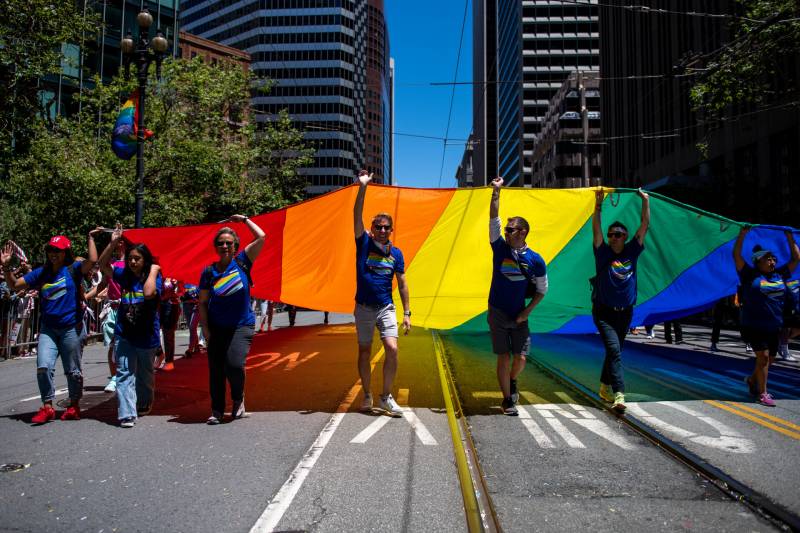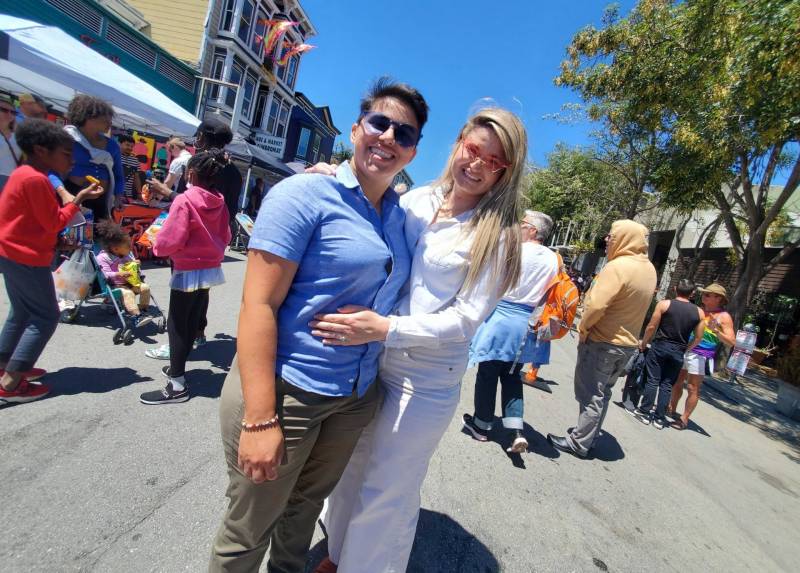"No one should be confident that this majority is done
with its work," wrote justices Sonia Sotomayor, Elena Kagan and Stephen Breyer. "The right Roe and Casey recognized does not stand alone. To the contrary, the Court has linked it for decades to other settled freedoms involving bodily integrity, familial relationships, and procreation."
Those rights, the justices wrote, "are all part of the same constitutional fabric."
Former San Francisco Mayor Willie Brown — the self-proclaimed "Ayatollah of the Assembly," a political star-maker and long-respected political watcher — made a similar analysis to KQED on Sunday.
"They're full of shit," said Brown in regard to the statements by conservative justices assuring people that the Dobbs decision would not affect same-sex marriage. (His opinion was phrased in what was perhaps a more pointed fashion than that of the liberal Supreme Court justices.)
When asked whether he thought Justice Thomas is alone on the court in his opinion, Brown replied, "Not at all. Of course he isn't alone."
Brown spoke from just outside an annual Pride breakfast hosted by the Alice B. Toklas LGBTQ Democratic Club, an annual feast before the parade where LGBTQ+ advocates and politicians hobnob. The club's San Franciscan namesake, writer Alice B. Toklas, lived with writer Gertrude Stein in Paris for years as they hosted art salons together; theirs has been described as "one of the best gay love stories of the 20th century."
Toklas died in Paris at the age of 89. But even in her New York Times obituary, which was written in 1967, she was described merely as Stein's "longtime friend."
Sunday morning, inside the walls of the Hyatt Regency San Francisco Hotel, politicians warned attendees of the Toklas Pride breakfast that conservatives threaten to take the country back to such an era.
"These laws that they're passing are creating absolute terror for members of our community across this country," said State Sen. Scott Wiener, specifically naming Florida Gov. Ron DeSantis, whose now-infamous "Don't Say Gay" bill restricts schools from discussing everyday gay life. It's also inspired copycat bills throughout the country.
"These laws are not just bad. We all deal with bad laws that get passed," Wiener told the crowd. "These are laws that literally question whether our community has a right to exist, whether we have a right to exist."
Wiener, who is openly gay, has received multiple death threats, including a recent bomb threat that was deemed credible enough to send a bomb squad to his home. He noted that it wasn't that long ago that people with hate in their hearts would drive long distances to beat gay men in the Castro.
"We're used to violence, unfortunately, in this community. We also know how to fight back," Wiener said. "Clarence Thomas did us a favor by saying the quiet part out loud, that Roe is just the beginning. They want to reinstate anti-sodomy laws. They want to end marriage equality. They want to end contraception."
"So guess what? We're not going back" to those times, Wiener said. "Not ever. That means we should be pissed off and should anger-tweet, but that's not enough. We have to win elections."
House Speaker Nancy Pelosi, also at the Pride breakfast, offered another solution: putting Republicans on the record about their positions, in Congress.


